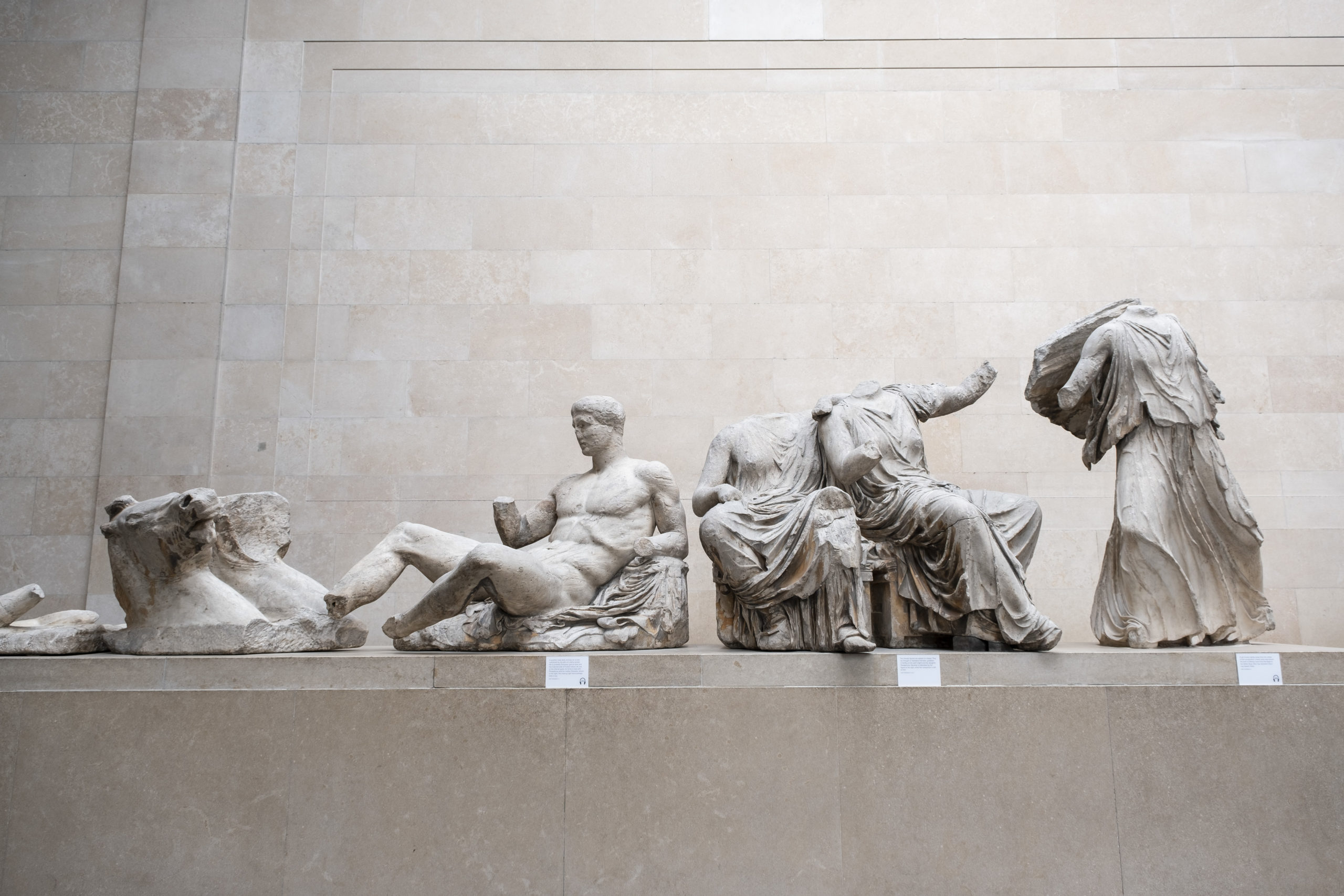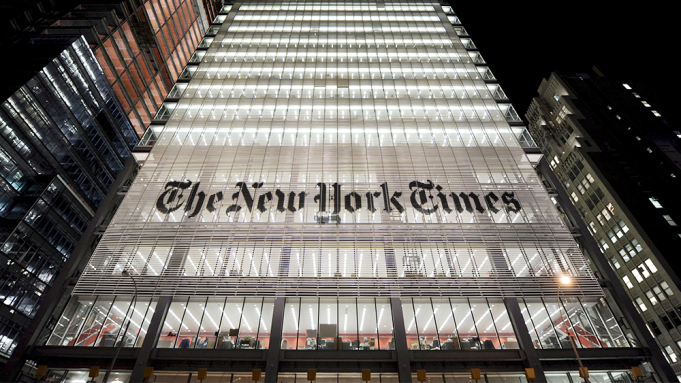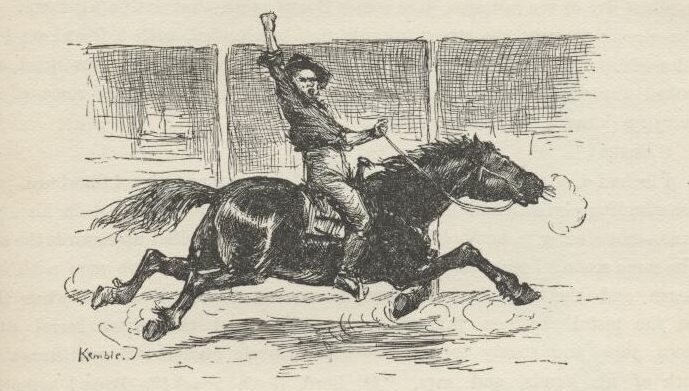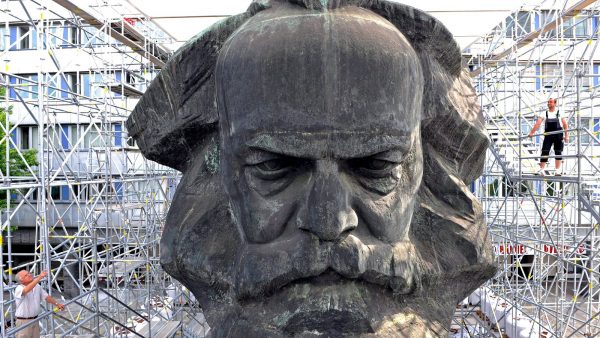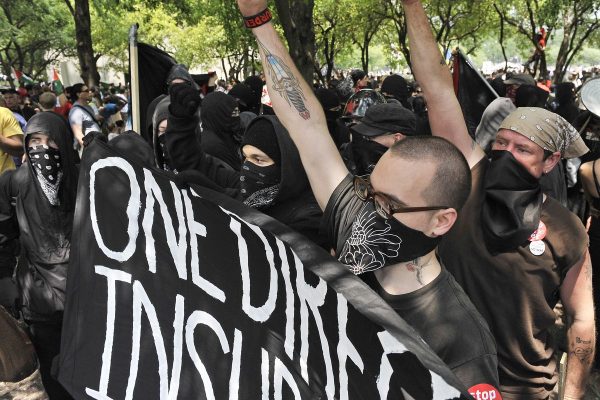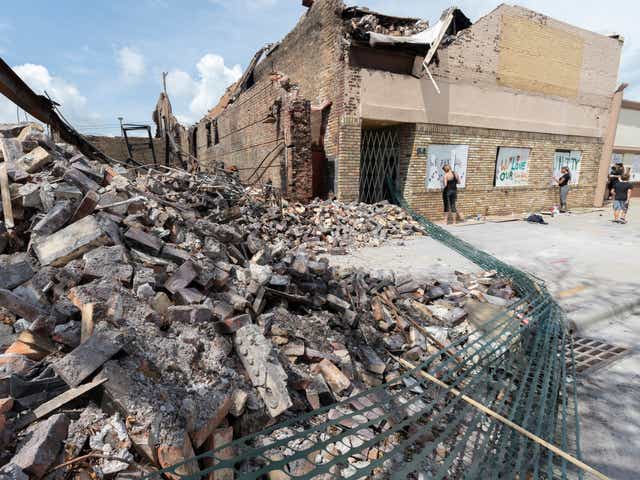As the statues go, so goes the citizenry
Revenge of the Liberators
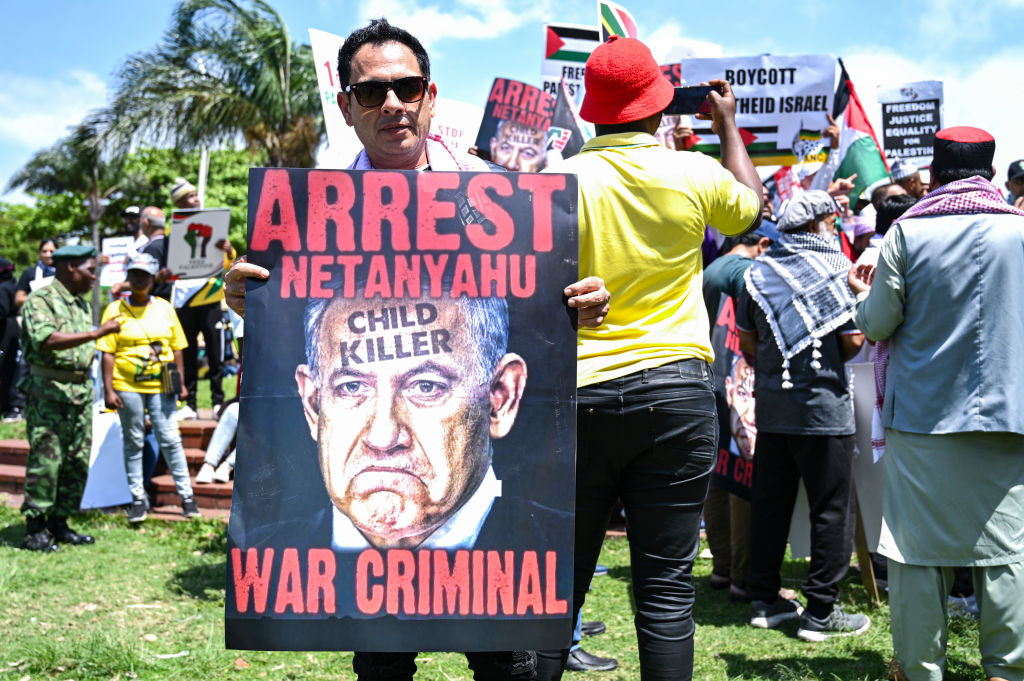
South Africa's radical decolonization efforts are an abject disaster.
Cold War-era Marxist revolutionary doctrine remains deeply ingrained in the liberation movements of southern Africa—movements which eventually became the ruling political parties in their respective countries. Current and past leaders of Mozambique, Zimbabwe, Namibia, and South Africa cast off decades of colonialism, which compromised freedoms, dignity, and prosperity of the majority populace.
Ideologically, financially, and militarily supported by communist China, Cuba, and the USSR during the revolutionary decades of the seventies and eighties, these African leaders, and their successors, incorporated Marxian-Leninist dogma into their political worldview. Firmly in control since independence, the leaders have not changed their spots, for they remain fervently dictatorial, socialist, and revolutionary despite displaying a democratic veneer.
Samora Machel, late president of the Frelimo liberation regime in Mozambique, was among the first leaders to adopt revolutionary tactics in the southern regions of Africa, followed by Namibia’s Sam Nujoma (Swapo), and Robert Mugabe of Zimbabwe and his successor, Emerson Mnangagwa, of the Zanu-PF Party, not to overlook Angola’s Neto and Dos Santos of the MPLA and others. The political parties of these revolutionary leaders remain in power decades after independence, much like South Africa’s ruling party, the African National Congress (ANC), a liberation movement in power since majority rule in 1994. The ANC incorporates the South African Communist Party and is allied to powerful Marxian unionist groups.
The American Left currently employs the arguments of revolutionary African “decolonization” in its protests against Israel. The October 7 terror attack by Hamas has been cast as a noble uprising against an “apartheid settler-colonial” state. In this narrative, Israel is the new racist South Africa—an illegitimate pariah nation which must undergo dissolution and reconstitution, as the proponents of “Free Palestine” insist. But the protestors extend their allegations beyond Israel; the Marxist-Leninist demand for international revolution targets all major Anglophone states, in particular the United States, and the West in general. When they chant “Intifada everywhere,” they mean it.
How has decolonization worked out in the “Rainbow Nation”? In the three decades since the ANC commenced rule, South Africa, rich in natural resources and with a hitherto first-class private business sector, has experienced some 40 percent unemployment, with daily power “load-shedding” nationally, and endemic corruption at every level of government; generally to the benefit of a politically-connected elite. During November 2023 for instance, the Office of the Auditor-General estimated over 12 billion Rands ($600 million USD) was lost the previous financial year through corruption in government departments. In fact, authorities have no real idea of the exact amounts involved, for countless billions have been lost through fraud and maladministration over the last 30 years, severely attenuating the country’s liquidity.
The official implementation of communist-era “cadre deployment” strategies into the public sector has socially, politically, and financially compromised one of Africa’s largest and most vibrant economies. Apart from government departments, all State Owned Enterprises (“SOE”) are bankrupt, dysfunctional, and crippled by endemic corruption through ideologically-appointed cadres filling positions like CEOs, directors, and managers. These elites draw substantial salaries, but for the most part are incapable of fulfilling their designated functions competently, or at all. SOE examples include the sole mandated supplier of electricity, ESCOM; the national broadcaster, SABC; the national airline, SAA; the national post office, and so on. Long-suffering taxpayers fund these ineffectual entities year after year with no improvement in sight.
All major arms of government and the public sector are dominated by socialist, unionized, ANC appointed loyalists resulting in a nationalized, centrally-controlled, inept public sector designed to generate political allegiance to the regime. South Africa’s state employees are considered the highest paid in the world, relatively speaking, as are politicians at all levels, from local to provincial and national. This situation has led to highly competitive elections, particularly at the local level, for the rewards of office are enticing. Ironically, it has also led to tempering of democratic principles as elected officials are constantly under threat of assassination, dissuading many persons of integrity from seeking office. Since July 2018, more than 150 politicians, either elected or standing for election, have been assassinated. A further 160 politically motivated crimes of attempted murder, intimidation, and conspiracy to murder are under investigation in one province alone, KwaZulu-Natal. The situation in other provinces is not greatly dissimilar.
Perpetuating the standard Marxist conflict between oppressors and the oppressed, the ANC implemented racial restrictions on the “colonialist” white race group and, to a lesser degree, on Indian and mixed-race communities, effectively prohibiting them from entering the public-sector, tender-driven economy on an equal footing. In the private sector, ANC racial requirements at all levels compromise traditional capitalist and merit-based principles and freedom of trade. In November 2023, regulations were promulgated by the Department of Agriculture, Land Reform, and Rural Development to the effect that only those entities complying with extraordinary racially-defined requirements under Broad-Based Black Economic Empowerment (BBBEE) can export agricultural products (a mainstay of the economy). As a result, farmers and other food processors need to meet onerous black preferential ownership targets, irrespective of merit, to obtain export permits. Unsurprisingly, this will further devastate the agricultural sector and shatter much-needed job creation.
The bungling ANC cannot manage its own finances despite being the largest political party in the country, much less the economy of Africa’s most sophisticated nation. During the first week of December 2023, the High Court Sheriff served a Warrant of Attachment and Execution on ANC headquarters, Luthuli House, as a result of an unpaid civil debt amounting to millions of Rands. In the process, the ANC’s bank accounts and assets were seized. ANC Party employees have frequently gone without wages due to cash flow issues.
The ANC’s brutal racist intervention in the economy, adversely affecting the social and economic life of the people, clearly suggests a form of revenge apartheid based on ressentiment, particularly against the numerically minor white class, a group comprising less than ten percent of the population, and decreasing. Victor Davis Hanson describes this scenario as “the racial chauvinism of the new tribal South Africa.” Notwithstanding the fact that apartheid ended in 1994 with the ascension of Nelson Mandela, a visionary who gave the country hope and promised a new deal for all, in the ensuing 30 years the country is officially more racist than ever. Even those whites born after 1994 who knew nothing of apartheid are discriminated against, struggling to obtain access to certain educational institutes, like medical faculties, irrespective of merit. They are discriminated against both in the public sector and private sector economies—the latter due to demographic racial requirements imposed on large corporates.
Irrespective of enticements, and preferential U.S. and European trade conditions (like AGOA—the African Growth and Opportunity Act), and with billions of U.S. dollars in annual financial support through USAID and others, the ANC increases its racially discriminatory domestic policies while, internationally, they refuse to support the West when it counts. At the United Nations, for instance, South Africa voted against (or abstained from) condemnation of Russia for the Ukraine invasion. Instead, in early 2023, South Africa conducted joint military exercises with Russia and China and, according to the U.S. Embassy, allegedly supplied a sanctioned Russian warship with matériel, presumably for the war against Ukraine.
Predictably, the ANC is in support of the terrorist liberation movement Hamas despite atrocities perpetrated by Al-Qassam Brigade’s Einsatzgruppen on innocent civilians, that fateful day in October 2023. Hamas operates offices in Cape Town, sanctioned by the ANC, but to the disgust of most South Africans, including the main opposition party, the Democratic Alliance. On December 5, Hamas officials attended a memorial for Nelson Mandela in South Africa. The officials included Basem Naim, erstwhile Gazan health minister, and Khaled Qaddoumi, the Hamas envoy to Iran.
In a December 18 release by South Africa’s Foreign Ministry, the ANC government threatened to prosecute citizens who volunteered for service in Israel’s military, while not commenting on those who serve with Hamas’s terrorists’ forces.
The ANC ignores the extensive condemnation of Hamas’s slaughter of innocents. In early November 2023, the editor of the South African Jewish Report wrote that South Africa’s foreign minister “congratulated Hamas on the success of their operation.” He adds the minister’s view accords with the “ANC line which supports Russia, Venezuela, Iran and Cuba.” In the same perverted mode, an ANC spokesman declared “the decision by Palestinians to respond to the brutality of the settler Israeli apartheid regime is unsurprising.”
The ANC enjoys historic alliances with Palestinians, initially through Arafat’s PLO. They confirmed their allegiance when downgrading their Tel Aviv Embassy to a liaison office and voting to shutter Israel’s Embassy in South Africa. The ANC recalled South Africa’s ambassador in 2018. In November they indicated their intention to rename Johannesburg’s most prominent street, Sandton Drive, after noted Palestinian activist and TWA airplane hijacker Leila Khaled. A local politician, Connie Mulder, spoke for the vast majority of South Africans on the Israel-Hamas conflict when he explained South Africa has effectively “turned its back on Western values, and expressed its support for countries and organizations that subscribe to terror as a measure and method of governance.”
Once in power, liberation movements are incapable of transforming to successful democratic governments. Revolutionaries never change their fundamental ideology, which is the pursuit of power above all else. Craving respect as international power brokers, the maladroit ANC elite make irrelevant peace trips to Russia, Ukraine, and elsewhere, while demanding an urgent BRICS heads-of-state meeting on the Israel-Hamas conflict: an exercise in futility.
The explanation for ANC mismanagement of South African life is demonstrated by the typical anarchist mode of res delenda est—everything Western, everything regarded as colonialist or imperialist or racist, must be destroyed and recreated according to Leninist-Marxist atheist dogma in pursuit of a nuanced version of faux-restorative social justice.
The ANC’s approach to the Israel-Hamas conflict is analogous to the racist policies of the Marxist-rooted Black Lives Matter movement (BLM), which celebrated the attacks of October 7 with grotesque memes displaying paragliders in silhouette. In May 2021, BLM emphasised, “We stand in solidarity with Palestinians. We are a movement committed to ending settler colonialism in all forms and will continue to advocate for Palestinian liberation.” BLM, like the ANC, honors its ethical equivalency with Hamas irrespective of circumstance, history, legitimacy, or merit. During late December, in another fatuous endeavor but confirming their anti-Zionist view, the ANC filed an application with the International Court of Justice accusing Israel of genocide over the Gaza invasion.
Until a positive regime change occurs, no improvement in the lives of the average citizen can be expected. They get poorer by the day through mismanagement of a once vibrant economy; through deep official racist economic policies; and through widespread corruption by the political elite. The 2021 mass uprising in South Africa displayed justified anger with the current political and economic situation, the unacceptably high unemployment rate, and the absence of hope for the future. The dim prospects of the poor, which led to the protest and resulted in many millions of dollars in damage to the economy, have not improved. There is therefore every reason to expect another uprising in the not too distant future. Such unrest will no doubt be exploited by ANC leaders for entrenchment of their regime as they have little inclination of relinquishing power, actions typical of many African leaders as a survey of that continent’s politics proves. In the meantime, these countries strengthen their ties to Russia, Cuba, and China.
Not unexpectedly, financial investment from the West increasingly dries up. As leading South African financier Johann Rupert noted, “No one is going to invest in a country where the leaders call each other ‘Comrade.’” So, realistic hope now turns to despair for southern Africa’s political and economic future, particularly South Africa which is fast approaching a failed state status due to what a 2023 Harvard Kennedy School study describes as “collapsing state capacity and spatial exclusion.”
The economic disaster that occurred in the failed State of Zimbabwe, when the Zanu-PF Party mistreated white farmers and businessmen by appropriating their assets without compensation, is ignored by the ANC in its quest for racial vengeance. The West stood by silently then and now ignores similar developments in South Africa with its looming policies of land expropriation without compensation, and the nationalization of pivotal industries such as mining. Lord Acton pointed out in 1834 that “false principles cannot serve as a basis for reconstruction of civil society.” The truth of this statement is evident in the South African situation, as the country finds itself on the brink of a multifaceted disaster thanks to reverse apartheid lunacy and Marxian economic ideocracy.
Such is the world of volatile and violent southern African politics, whose leaders pay lip-service to the West’s ideals of democracy while reaping the benefits of its naïve generosity, without sanction of any kind. And in the streets of the West itself, leaders ignore the “peaceful protests” that illegally block bridges and highways, and grow increasingly emboldened by the silent complicity of the political class. Americans fond of the rule of law and democratic institutions ought to look to South Africa to see what radical decolonization looks like.
The American Mind presents a range of perspectives. Views are writers’ own and do not necessarily represent those of The Claremont Institute.
The American Mind is a publication of the Claremont Institute, a non-profit 501(c)(3) organization, dedicated to restoring the principles of the American Founding to their rightful, preeminent authority in our national life. Interested in supporting our work? Gifts to the Claremont Institute are tax-deductible.
Woke identity politics is liberalism’s successor ideology—from the New York Times on down.
Conserve your spine or lose it all.
Unless all lives matter, none does.
Antifa’s leading insider reveals more by what he doesn’t say than what he does.
Joe’s sudden attempt to play cop is pitifully transparent.

